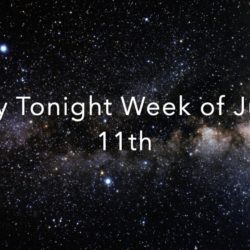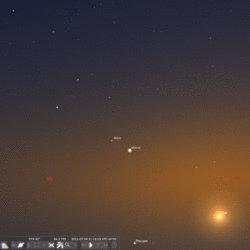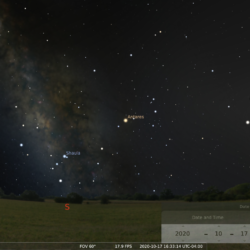The Sky Tonight for the week Beginning July 25th (Podcast)
Today we look at the sky for the week beginning Sunday, July 25th. With this edition of the sky tonight, the sky has changed somewhat since last week. In the morning, Mercury is in Cancer with the sun and lost in the solar glare before sunrise. The evening sky sees Venus remaining prominently placed with[…]







